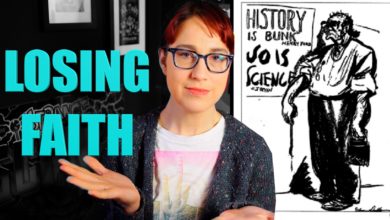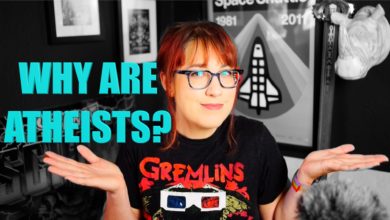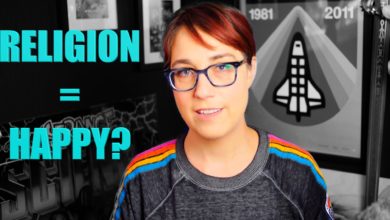Infidel Review: Part 2
 Sorry for taking so long to post the second half of my review of Infidel by Ayaan Hirsi Ali. With my cold or allergies or whatever it is that’s been fogging my head up lately, it’s been easier to write quick, ranty posts than to think through what I wanted to say about the second half of Infidel, at least in part because it includes my least favorite topic in the universe: politics.
Sorry for taking so long to post the second half of my review of Infidel by Ayaan Hirsi Ali. With my cold or allergies or whatever it is that’s been fogging my head up lately, it’s been easier to write quick, ranty posts than to think through what I wanted to say about the second half of Infidel, at least in part because it includes my least favorite topic in the universe: politics.
Reading Infidel reminded me of my childhood biography reading preferences: I was completely enthralled by the beginnings of biographies that detailed the subjects’ childhoods, but I lost interest when they grew up. The opposite happened as I read Infidel. I found the second half of the book, which covers Ali’s escape from an arranged marriage and forced religious observance and her mental development once she was free from constant indoctrination, to be more familiar to me, and in some ways more engaging, than the first half. Perhaps this is because now that I am an adult, I relate more with the adult experiences of the author, or perhaps it’s because the second half of the book is where Ali encounters Western society, giving me a framework to understand her experiences.
When Ali arrived in Germany en route to Canada to join the husband chosen for her by her father in an arranged marriage, she was amazed at what she saw. Women were walking around with their heads — and even their arms and legs — uncovered, and men had not fallen into a sexual frenzy. No one was crashing cars into buildings because of their excitement, and business went on as usual. In fact, most of the men didn’t even seem to notice all of the exposed skin around them.
Ali decided that she did not want to join her husband in Canada, where she would undoubtedly end up living the same oppressed life as her mother, and she was told it was easier to gain asylum in The Netherlands, so she went there and, ultimately, was allowed to remain in the country. After a while, she tried going outside herself without covering her head. Nothing happened. She bought a pair of jeans and wore them with a long tunic. Nothing happened. She found herself wondering what other lies she’d been taught. (I was taught that if I stopped going to church I’d end up on the streets as a prostitute and drug addict.)
One day, after living in The Netherlands for some time, attending college, working as a translator for Dutch social services, and assimilating into Dutch society, Ali was forced to look much deeper into her religion and to evaluate her beliefs. She could no longer push the conflicting ideas she was learning out of her mind:
The little shutter at the back of my mind, where I pushed all my dissonant thoughts, snapped open after the 9/11 attacks, and it refused to close again. I found myself thinking that the Koran is not a holy document. It is a historical record, written by humans. It is one version of events, as perceived by the men who wrote it 150 years after the Prophet died. And it is a very tribal and Arab version of events. It spreads a culture that is brutal, bigoted, fixated on controlling women, and harsh in war.
This is exactly what happened to me one day in 1992 when I was reading an issue of Whole Earth Review. I’d stopped going to church a couple of years earlier and, lo and behold, I had not turned into a hooker or a junkie, but I was still thinking in a way that I’d been accustomed to throughout my religious indoctrination. My mind was not free, and neither was I. The words and ideas in the magazine I was reading put a wedge into my brain and cracked it open so I could think my own thoughts again, something I hadn’t done since the late 1970s when I was in high school. It was, without a doubt, one of the most amazing moments of my life. And this was my favorite moment in Infidel.
After being astounded at and benefiting from the Dutch welfare system herself, Ali has decided that the system contributes to the isolation of Muslim groups, and retards their assimilation into Western society. Since I hate talking about politics, I will let this review in The Guardian explain her views:
She characterises the manner in which liberals sidestep such details as a confusion of facts and strategy. ‘Some people will accept that Islam is backward but they’re not going to say that because Muslims will be offended. “We want them to become liberals, so we’re just going to trick them into a secular humanistic way of thinking.”‘ At this she lets out a giggle, as if tickled by the absurdity of the idea. ‘But people are aware of what’s going on. That’s why many Muslims are suspicious of liberals. Because they know they are not being taken seriously.’
…
As she sees it, Islamic society is inimical to development. ‘So everyone wants to move here, and they want to make this place look like there. We shouldn’t cling to the customs and beliefs that caused us to move out in the first place. Unfortunately people in the Third World think that just by moving house they leave their misery behind. And that’s what the integration debate is about: if you take those values with you and come here, it’s not going to change your misery.’
This is in essence what Tony Blair said a few weeks back when he spoke about a ‘duty to integrate’, and suggested that those people looking to move to Britain who didn’t agree with British values should perhaps think about not coming. To some, Blair’s comments were tantamount to a crude ‘send ’em back’ agenda. This in itself is perhaps reason to be thankful for Hirsi Ali. She knows what life is like without the benefit of the freedoms and rights that Europe has established and she, at least, is not afraid to emphasise how crucial it is not to lose them.
The same issues come up in American discussions about immigration as well, and those who share Ali’s views tend to be on the conservative side of the spectrum. Because I am about as far to the left as you can be without leaving North America, I found that Ali’s ideas challenged some of my assumptions in a way that leaves me without any conclusions at this point.
Ali talks about some of these same topics in this video:
Leaving the Faith
Ayaan Hirsi Ali went from political Islam to apostasy. How has her attitude toward the religion changed?
The rest of Infidel covers Ali’s life in The Netherlands and her more recent move to America, where she works at the Washington-based conservative think-tank, the American Enterprise Institute. You may disagree with Ayaan Hirsi Ali’s political viewpoints, but you can’t argue with her experience. As Ali writes, “How many girls born in Digfeer Hospital in Mogadishu in November 1969 are even alive today? And how many have a real voice?”
Ali has found her voice and she is not afraid to use it. That’s why I love to hear people’s stories. I find personal stories to be much more powerful and moving than tables of facts and figures, and stories provide a way to communicate even to those who are not interested in logic or reason. Ayaan Hirsi Alis’ life may or may not be typical, but it is a real life and in that sense, true. Regardless of what you think of Ali’s politics, Infidel reveals that she is an amazing woman who serves as a roll model for us all.
For those who haven’t read the book yet, it’s coming out in paperback on April 1.
As a side note, the possible tendency for some well-known atheist authors to favor extremist right-wing politics has recently been critiqued by author Chris Hedges in his newest book, I Don’t Believe in Atheists. Hedges also projects these political viewpoints onto everyone he considers a “New Atheist.” While I think Hedges has at least partially misunderstood or misinterpreted the authors he’s read, and he is wrong to project their views, whatever they may be, onto their readers, I don’t think his concerns should be dismissed without consideration, if for no other reason than that the perception he describes is held by many others. If it is false, is should be dispelled and not just by our ranting against it, but by our actions.






One for the irony file: After I watched the video and hearing her declare the importance of critical thinking, they showed me an ad for a seminar by James Arthur Ray, one of the Law of Attraction crowd.